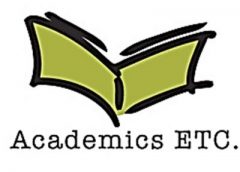-

Every year in the spring, students all over the country select courses to take in their upcoming year of high school. Schools must organize their course offerings and teacher schedules in anticipation of the requests. Counselors (in schools lucky enough to have sufficient numbers of counselors) meet with students and parents while agonizing over the decisions. Should my child take Advanced Placement (AP) classes, Honors courses, or regular class offerings? Who teaches these particular courses and are the teachers “easy” or “demanding”? Do colleges prefer seeing a “B” in an Honors class versus an “A” in a regular class? How will our college of choice view the course selections and will my student be poised to enter their first choice school? (Of course, not all students are college material, but this shall be a topic of another discussion.) The answers to these questions are not always simple, but exercising some basic common sense can be useful.
As a parent, it is important to be realistic when assisting your student make course selections. Most states have guidelines of minimum courses and topics a high school student must complete to graduate. These courses will establish the foundation. For example, four years of English and three years of Math. Three years of Social Sciences and two years of foreign language as well as several years of hard sciences including at least one year of a lab science. Many schools require students to take a year of art and a couple years of physical education or participation on a sports team. Whatever the requirements for your high school and state, these will guide your initial decisions. For many schools, a student’s performance in middle school will dictate whether or not the student will be allowed to enroll in an Honors course or Advanced Placement course. This makes logical sense.
But, there is always the parent who wants to ignore all recommendations, and insists their little Iggy be enrolled in the more challenging class. After all, it is a new start and even though Iggy performed poorly throughout middle school science classes and on any standardized exam administered to date, he loves science and will rise to the challenge of taking an honors course. I can’t tell you how many times I have heard that over the years, but I can tell you that more often than not, the results are not positive. Let your first year high school student take courses they are recommended for and if they rise to the occasion and excel, increase the course demands in their second year.
Most high schools do not allow parents to dictate what teachers their students will have. There is always a teacher or two that parents hope to avoid and some parents will go to all costs to insure Iggy does not get the mean or hard teacher. This is not necessarily a great life lesson for Iggy. It is more character building to learn to deal with the challenging teacher as someday again he is likely to encounter a challenging boss or difficult neighbor. Learning to navigate relationships with different types of people is a lesson well learned younger than older.
Colleges prefer to see A’s in all classes attempted. If your student can handle the curriculum in Honors courses or AP courses, let them take them. Remember AP means college level work. Is it realistic for your high school freshman to be taking a college level course? For some, the answer is a loud “yes”, but for others it is an even louder “NO”. But, with that said, there are plenty of college options and trade school options for all students. Be reasonable (show reason and sound judgement) about the schools your student is aiming for. (A topic for another day!)
Bottom line, be realistic in choices you make and both you and your child will be happier.
A Better Education, A Better Life
Serving Students across the United States!
susan@academics-etc.com
We are Looking Forward To Hearing From You and Helping Your Student!!
susan@academics-etc.com

